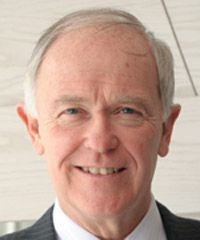69th IATA AGM
PROFITS ON THE RISE
But airlines still only earn about $4 per passenger, less than the cost of a sandwich in most places, says IATA chief Tony Tyler.
July 1st 2013
It was Singapore Airlines (SIA) chief executive, Goh Choon Phong, who spelled it out for the heads of the world’s airlines at their annual talkfest in South Africa last month. His message: forget about a level playing field, accept the situation and get on with it. Read More »
 |
| 'Is there any industry that really has a level playing field? The answer is no. It is about how individual carriers react to that market and that environment' |
| Goh Choon Phong Chief Executive Singapore Airlines |
“We have to ask ourselves, is there any industry that really has a level playing field? The answer is no. The important thing is recognizing the industry is such and then it is about how individual carriers react to that market and that environment,” he said.
It was a view supported by Emirates Airline president, Tim Clark, who told delegates: “However hard we talk here about level playing fields, you will never get it so long as governments think differently about how aviation sits in their various economies.”
They were speaking during a chief executive insight panel after the heads of two big U.S. carriers, American Airlines’ Tom Horton and Delta Air Lines’ Richard Anderson, bemoaned the fact the U.S. does not have a national aviation policy.
“Other governments take a different view,” said Clark. “They recognize the quality of the business that the aviation sector provides, support it and have a formal policy that allows them to maximize the opportunities.
“But even in the developed world there are governments that do not share that view. They do not support their own carriers, whether they be government-owned carriers or in the private sector.
“They should recognize the criticality of what they are doing to the economies in which they sit. It’s a complete mystery to me why you cannot get the political classes to understand the criticality of that. That, in itself, creates a level playing field of some strange dimension.”
Willie Walsh, head of IAG (International Airline Group), owner of British Airways and Iberia, added the airline industry was not perfect. “[Goh] Choon Pong said it very well. You have to play the game by the rules that are presented to you. We can bitch and moan about the rules, but you just have to get on with it.”
Despite the challenge of an operating environment that varies worldwide, not only in a regulatory sense, but from widely varying economic circumstances, the world’s airlines were surprisingly upbeat in Cape Town.
 |
| 'My view is that oil prices will continue to fall …. they will stabilize, hopefully, within the $80 to $100 range' |
| Tim Clark President Emirates Airline |
They heard from IATA director general and CEO, Tony Tyler, that the industry is looking up after three years of depression.
Global carriers, he said, should post combined profits of $12.7 billion this year, up from a previous forecast $10.6 billion forecast three months ago. The improvement was a result of lower oil prices and belt-tightening. This is 67% better than last year’s $7.6 billion profit.
Tyler said record passenger numbers and growth in ancillary revenue were the two key reasons for the improved profitability. Ancillary revenue would rise to $36 billion, or 5% of total turnover, as airlines unbundle more services from base fares and charge for additional services, such as meals, extra baggage and seats.
Carriers are expected to fill 80.3% of their seats and carry an unprecedented 3.13 billion passengers this year, up from 79.2% and 2.98 billion, respectively, last year, as operational changes and better capacity management filter through the industry.
However, margins remained weak amid Europe’s continuing debt crisis. Even with the improved outlook, the industry’s earnings will equal just 1.8% of its $711 billion in revenue, well below the profitability high (for the past decade) of 3.3% set in 2010.
“The day-to-day challenges of keeping revenues ahead of costs remain monumental,” said Tyler. “On average, airlines will earn about $4 for every passenger, which is less than the cost of a sandwich in most places.”
The improved earnings will again be driven by Asian carriers, which are expected to post annual profits of $4.6 billion, followed closely by North American operators with $4.4 billion in income. This figure is driven by gains from major airline mergers in the U.S.
Tyler suggested the new, merged U.S. carriers would launch an international offensive because they would be leaner companies that will be better able to compete with their Asian and Middle East rivals.
There was one sour note: the cargo market, which has been in the doldrums for almost three years, is showing little sign of bouncing back.
Andrew Herdman, director general of the Association of Asia Pacific Airlines (AAPA), said an expected recovery in freight had failed to materialize. Some of the region’s operators rely on freight for up to 40% of their revenue.
| 'The natural condition of this industry sometimes seems to be crisis. Volcanoes and earthquakes, famine and disease, it’s almost been biblical, but we’ve come through' |
| Tony Tyler Director General IATA |
The AAPA’s latest statistics, for the five months to the end of May, show that while passenger traffic increased 5.2%, cargo declined 2.4%. “The outlook for international air cargo demand remains clouded by uncertainty over the likely pace in world trade flows,” said Herdman.
There was a belief at the IATA annual meeting that airlines have done a great deal to improve their businesses.
SIA’s Goh said in the long run airlines have to believe the global economy will grow and will be robust. “That’s one part of it. The other part of it is costs. Fuel costs have contributed to the difficult and challenging performance for long-haul operations,” he said.
“On the other side, there are the efforts that all of us have put in to reduce fuel costs by finding more efficiency, whether it is with new aircraft or operating the aircraft in a more fuel efficient way. All this will bear fruit in the long run.”
Emirate’s Clark believed the five-year adjustment the global economy has been through and the draconian measures put in place to deal with the global economic decline are beginning to work. “We’ve certainly got a year or two to go, but the fact of the matter is this is a buoyant economy,” he said.
“I am talking about the global economy. We are already seeing in certain parts of our operation quite a lot of pressure on inventory, quite a lot of pressure to accept the current pricing levels, that we need to make money given fuel prices as they are.
“My view is that oil prices will continue to fall, as they rightly should do. They will stabilize, hopefully, within the $80 to $100 range, which allows us, as an industry, to start performing profitably again.
“At the same time, it will provide a major impetus to the global economy and we’ll start taking out some of the very high costs that are basically a result of the hydrocarbon prices we are facing and have faced.
“The most important fact is that demand is coming back in just about all categories, whether it be transport, power production or whatever. The measures various governments have taken are starting to bear fruit in their own countries.”
Alan Joyce, Qantas Airways chief executive and retiring chairman of IATA’s board of governors, said the coming year could open new opportunities for more airline partnerships to emerge. And, he said, there could be room for more mergers and acquisitions. “More consolidation, in one form or another, is a good thing,” said Joyce.
Said American Airlines chief executive, Tom Horton: “Much has been done. There has been a lot of structural change, together with consolidation in North America and Europe and elsewhere as well as synthetic mergers across borders. Those things have played a big role in the industry being more profitable, even in the face of high fuel prices.”
IAG’s Walsh said it was already “a transformed industry” that was going to be very different going forward. “I genuinely believe we are an industry that will, for the first time as an industry, start exceeding our cost of capital,” he said.
However, Tyler warned if carriers were to find the $4 trillion to $5 trillion needed to finance projected fleet development in the next 20 years even more improvements were needed.
“The natural condition of this industry sometimes seems to be crisis. Volcanoes and earthquakes, famine and disease, it’s almost been biblical, but we’ve come through,” he said.
During the annual meeting airlines also continued to push their new distribution capability, passing a key resolution affirming it will support current shopping methods, including the ability for consumers to compare base airfares without identifying themselves and that purchasers will be protected by data privacy protection laws and regulations.